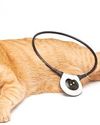
While most ESAs were dogs and cats, passengers attempted to travel with all kinds of pets and exotic animals, including an 80-pound pig and a well-publicized peacock who was denied passage and subsequently died.2 Incidents such as this help explain why the new rules no longer consider ESAs as service animals. While passengers who suffered psychiatric disabilities can still bring service animals with them, it is now the animals who must have documentation, not the owner. USDOT greatly narrowed the definition of a service animal to a dog that is individually trained to do work or perform tasks for the benefit of a person with a disability. It is no longer enough for a dog to just sit on its owner’s lap and wag its tail; it must be able to perform specific tasks. Airlines can now require documentation to prove that the dogs could actually perform the task that the owners claimed they needed the dog to perform for them.3
This story is from the August 2021 edition of Cat Talk.
Start your 7-day Magzter GOLD free trial to access thousands of curated premium stories, and 9,000+ magazines and newspapers.
Already a subscriber ? Sign In
This story is from the August 2021 edition of Cat Talk.
Start your 7-day Magzter GOLD free trial to access thousands of curated premium stories, and 9,000+ magazines and newspapers.
Already a subscriber? Sign In

Life With Patrick
Patrick and Mount Doom

Feline Photographers Part 1
\"Cats never strike a pose that isn't photogenic.\" - Lillian Jackson Braun

The Cat Fancy Alphabet
\"The Cat Fancy Alphabet\" is a new feature in Cat Talk. It highlights various terms and aspects of the cat fancy, educating fanciers new and old about our hobby.

UP CLOSE AND Purr-sonal
If there is one person, or even just a name, that anyone in CFA (Cat Fancier Association) knows, it would have to be Allene Tartaglia. It might be from her involvement with most aspects of the operations of CFA in her position of executive director. Or perhaps from her deep involvement with both the CFA Annual meeting and/or the International Show. Cat Talk thought it was time to learn more about one of the most key people in CFA.

Vision and Hearing Dysfunctions in Senior Cats
Just as people are challenged by having deficiencies with vision and hearing over time, so are senior cats. In senior cats, pet owners may notice their cats are no longer responding to them in the same way; however, it may be difficult to figure out.

Senior Cats and House Soiling
Why is my cat no longer using its litter box? Cat soiling in the house is one of the most talked about issues for pet owners.

Nutrition for Our Senior Cats
From the time they are born, our kittens receive a tremendous amount of care, with diet being at the core of their growth and development.

Fluffy's Sixteen and STILL Plays Like a Kitten!
Enrichment for Senior Cats

Alternative Arthritis Treatments for Cats
Just like humans, cats can experience arthritis. About 90% of cats over the age of 10 years experience osteoarthritis (OA) in at least one joint.1 It is a complex condition involving inflammation and degeneration of one or more joints and is sometimes referred to as degenerative joint disease (DJD). Cats with OA experience pain and inflammation in various joints that interfere with daily activities.

Checklist For What to Look For in Your Club's Next Show Venue
Show Manager To Ring One, Please